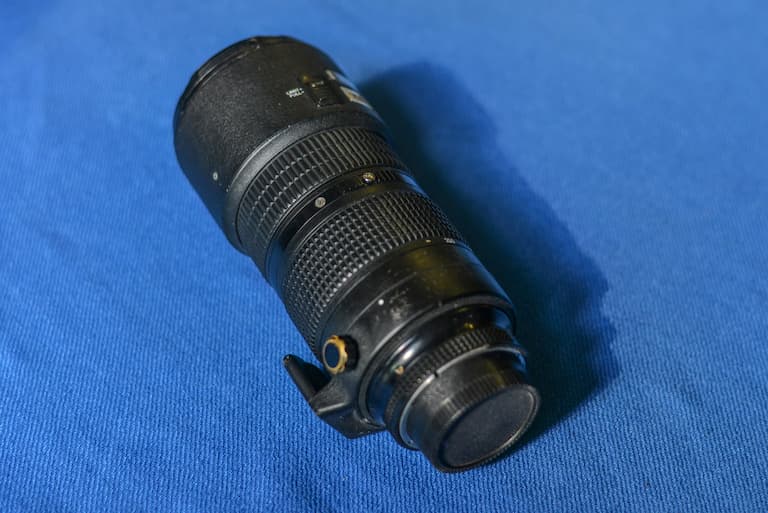A teleconverter sits between your camera and the lens and works as a magnifier, increasing the focal length. On the other hand, a zoom lens is a single lens that offers variable focal length. Can you use a teleconverter with a zoom lens to magnify the variable focal length?
A teleconverter can be used with a zoom lens, but you need to make sure they’re compatible. If you’re using an incompatible combination, the auto-focus feature might not work, while the pictures you click can lose sharpness and clarity.
In this article, we’ve put together a detailed guide on whether a teleconverter will work with all zoom lenses. We’ve also highlighted the various limitations of using an incompatible teleconverter and zoom lens pair.
Table of Contents
Will a Teleconverter Work With All Zoom Lenses?
A teleconverter won’t work with all zoom lenses. Some teleconverters have a physical design that limits some zoom lenses from fitting into the camera mount. In other cases, optical limitations make particular teleconverter and zoom lens combinations useless.
The primary function of a teleconverter is to magnify or multiply the focal length of a lens, extending your photographic reach. As such, most teleconverters are specifically designed to work with super-telephoto prime lenses, since you’d want to start with a lens that already has a long focal length.
With that said, you can use teleconverters with different types of lenses (including zoom lenses), as long as you check their compatibility.
Sometimes, physical limitations keep a teleconverter from connecting with a zoom lens. In that case, you have a telltale sign that the teleconverter isn’t meant to work with that specific zoom lens.
You’ll also find instances where, even though the teleconverter connects with a zoom lens, the picture quality is terrible, or some of your camera’s features like autofocusing stop working. This is also a sign that the combination doesn’t work well together.
Overall, if you’re planning to buy a new teleconverter for your zoom lens or vice versa, it’s always a good idea to check whether they’re compatible. Unless you’re buying a cheap off-brand teleconverter (which we don’t recommend), the manufacturer should provide a list of lenses it’s compatible with.

To make your life easier, we’ve compiled a list of resources to check whether your teleconverter and lens are compatible with one another.
- Nikon teleconverters compatibility list
- Canon teleconverters compatibility list
- Sigma teleconverters compatibility list
- Kenko teleconverters compatibility list
Note that the teleconverter-lens combination you’re planning to buy might not be included in the above list. In that case, check the teleconverter manufacturer’s website to see if it’s compatible with your zoom lens.
Limitations With Using Incompatible Teleconverters
We’ve established that not all teleconverters will work with all zoom lenses. But what specific problems will you encounter if you use an incompatible teleconverter and zoom lens? Let’s take a look at these limitations in more detail.
The Zoom Lens Won’t Physically Attach to the Teleconverter
The first sign of incompatibility between a zoom lens and a teleconverter is if they don’t physically attach to each other. For example, a design element can stick out that’s too close to the camera mount, keeping the lens from properly attaching itself.
That said, you may also experience trouble connecting compatible teleconverter-lens pairs. After all, lens and lens mounts have gotten more complex over the years. As such, always check your manual to know the correct way to attach your teleconverter to a zoom lens.

Autofocus Feature Won’t Work
Because of their variable focal length, Zoom lenses are typically slower than regular prime lenses. As a result, when using a zoom lens, your camera has to work with less light. On top of that, teleconverters allow you to magnify the focal length, but you’ll lose 1 to 2 stops of light in the process.
Here’s a comprehensive 17-min YouTube video covering everything you need to know about teleconverters:
When you use a teleconverter with a zoom lens, the lens might become too slow, leading to a problem with your camera’s autofocus system. In some instances, the autofocus functionality might completely shut off, and you’ll need to focus your shots manually.
Generally, it’s recommended that you don’t use a teleconverter with a lens that has a maximum aperture slower than f/2.8. However, that mainly applies to older cameras.
Modern cameras have more advanced autofocusing systems that work with much slower apertures. For example, consider this Nikon Camera Body:
The Nikon D850 (available on Amazon.com) can autofocus at f/8. This means you can use a 2X teleconverter (which loses 2 stops of light) with an f/4 lens with the camera and still have the autofocusing feature enabled.
Other Optical & Systematic Problems
When you attach a teleconverter with a zoom lens, you’re adding more elements that need to work in tandem to help you click the perfect shot. At the same time, if one of these elements doesn’t fall in line, your picture will get ruined.
For example, lens decentering is a common issue with teleconverter and zoom lens setups, where the lens is out of its normal position, turning the image blurry or illegible. You may also encounter optical glitches where your lens’ aperture control or your camera’s image stabilization may stop working.
Matching Your Teleconverter With Your Zoom Lens
The best way to avoid these problems is to check (and double-check, if possible) the compatibility of your teleconverter with your zoom lens before you buy. As mentioned above, you can look at compatibility lists online. If a compatibility list isn’t available for your particular model, check your camera’s manufacturer’s website. If possible, test your lens before purchasing or using it.
Key Takeaways
Some teleconverters are compatible with some zoom lenses, but not all.
For example, due to physical limitations, a teleconverter and a zoom lens might not attach to one another.
In other instances, a zoom lens might attach to a teleconverter, but the picture quality might turn out horrible, the autofocus feature might stop working, or you may face other optical and systematic problems.
That’s why it’s important to check whether a teleconverter is compatible with your zoom lens before investing in the former.



